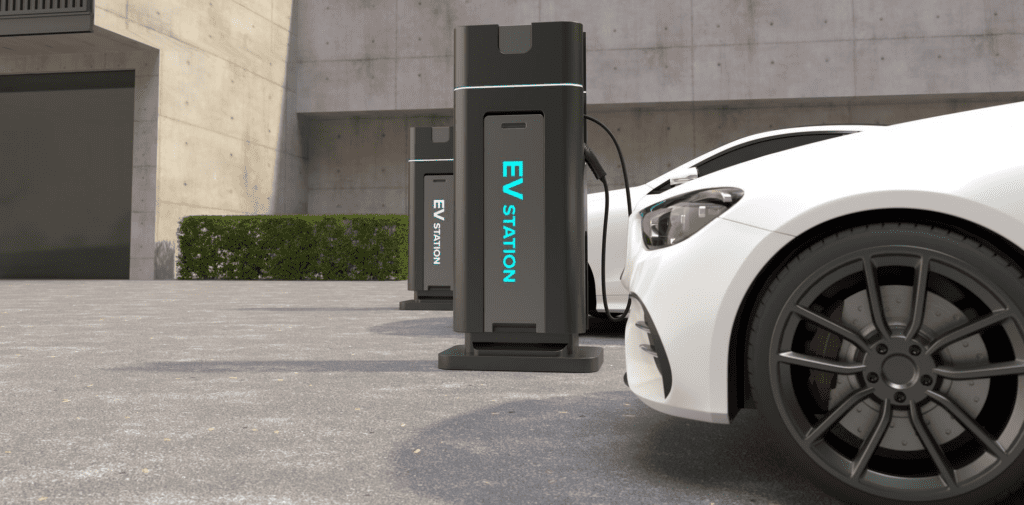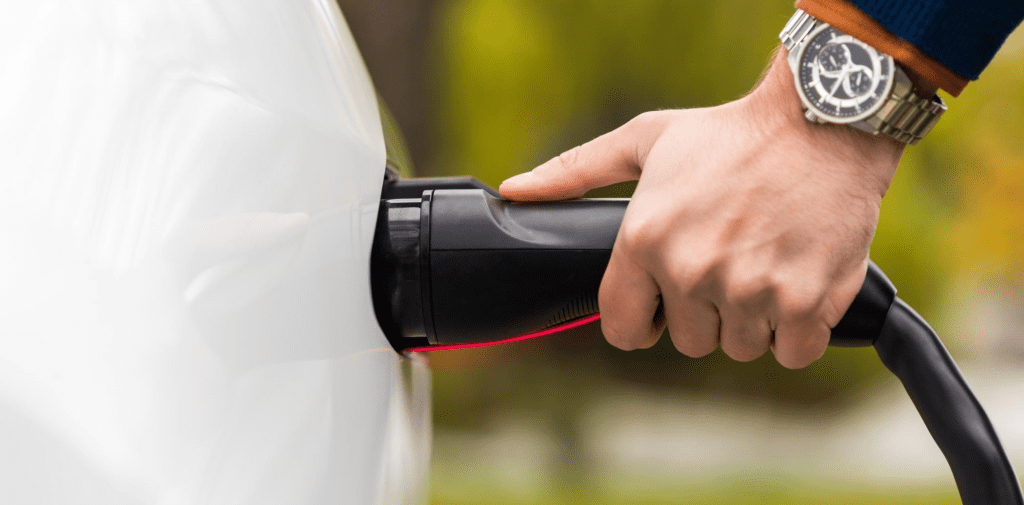Compare cheap car insurance
✔ Compare cheap car insurance quotes
✔ Over 110 insurance providers
✔ Get a quote in minutes
✔ Save up to £504*
Despite the UK government postponing the ban on new petrol and diesel car sales to 2035, a recent survey shows that 44% of Britons are concerned about the insufficient number of EV charging points for the growing number of electric vehicles (EVs).
- The UK’s EV Charging Hotspots
- The Worst UK Locations for EV Charging
- Does the UK public think there are enough EV Charging Points?
- The UK’s biggest reservations about Buying an EV or Hybrid Vehicle
- The UK’s main motivations for Buying an EV or Hybrid Vehicle
This delay raises questions about whether the UK will have enough time to build confidence among British drivers and prepare for the rising number of EVs.
Download the Zap Map app to find EV charging stations across the UK
Our research delved into the availability of EV charging facilities across the UK, identifying the top spots for EV charging.
We assessed each local authority based on the growth in charging points since 2020, the density of charging points per 100,000 people, and the proportion of rapid charging stations. Rapid chargers are defined as those capable of powering up most cars to 80% in less than an hour.
How much can you save on your car insurance?
The UK’s EV Charging Hotspots
Index | Location | Region | Number of charging points per 100k people | % of charging devices that are rapid charging or above | % increase in charging points since 2020 |
1 | Oadby and Wigston | Leicestershire | 69 | 13% | 3900% |
2 | Westminster | London | 893 | 4% | 248% |
3 | Castle Point | Essex | 3 | 100% | 200% |
4 | Rugby | Warwickshire | 69 | 35% | 1875% |
5 | Thurrock | Essex | 32 | 79% | 273% |
6 | City of London | London | 638 | 13% | 53% |
7 | Broadland | Norfolk | 48 | 61% | 392% |
8 | South Staffordshire | Staffordshire | 49 | 57% | 350% |
9 | Bromsgrove | Worcestershire | 53 | 64% | 66% |
10 | South Kesteven | Lincolnshire | 34 | 65% | 75% |
EV Charging in Oadby and Wigston in Leicestershire
Oadby and Wigston in Leicestershire stand at the forefront as the UK’s top EV charging hotspot. This area has witnessed a staggering 3,900% surge in EV charging points since 2020, outstripping any other region in the UK.
EV Charging in Westminster
The London borough of Westminster secures the second spot. It boasts the highest number of EV charging devices in the UK, with 893 per 100,000 people. This marks a significant 248% increase from 2020 when the total was just 527.
EV Charging in Castle Point
Castle Point in Essex ranks third. Despite currently having only 3 EV charging devices per 100,000 people, its 200% growth in charging facilities since 2020 and the fact that all points offer rapid charging make it a noteworthy emerging hotspot.
EV Charging in Rugby and Thurrock
Completing the top five are Rugby in Warwickshire and Thurrock in Essex. Rugby has seen the second-largest growth rate in EV charging points, at 1,875%, resulting in 69 stations per 100,000 people. Thurrock features 32 stations per 100,000 people, with a remarkable 79% being rapid chargers or better.


These hotspots highlight the UK’s commitment to expanding its EV infrastructure, offering greater convenience and confidence to EV users across the country.
How much can you save on your car insurance?
The Worst UK Locations for EV Charging
Index | Location | Region | Charging points per 100k population | % of charging devices that are rapid charging or above | % increase in charging points since 2020 |
1 | Ards and North Down | Northern Ireland | 12 | 0% | 12% |
2 | Newry, Mourne and Down | Northern Ireland | 17 | 3% | -3% |
3 | Armagh City, Banbridge and Craigavon | Northern Ireland | 18 | 3% | 30% |
4 | Leicester | Leicestershire | 30 | 1% | 51% |
5 | Lisburn and Castlereagh | Northern Ireland | 10 | 7% | 36% |
6 | Woking | Surrey | 22 | 4% | 77% |
7 | Ashford | Kent | 34 | 4% | 55% |
8 | Causeway Coast | Northern Ireland | 23 | 6% | 39% |
9 | Derry City and Strabane | Northern Ireland | 17 | 8% | 13% |
10 | Harlow | Essex | 14 | 0% | 333% |
EV Charging in Northern Ireland
Northern Ireland finds itself significantly behind in terms of EV charging infrastructure. Seven local authorities from this region are among the UK’s bottom 10 for EV charging facilities.
These include Ards and North Down; Newry, Mourne and Down; Armagh City, Banbridge and Craigavon; Lisburn and Castlereagh; Causeway Coast and Glens; Derry City and Strabane; and Fermanagh and Omagh.
EV Charging in Ards and North Down
Topping the list of the worst areas for EV charging in the UK is Ards and North Down. The area is notably lacking, with no rapid charging ports and only 12 charging devices available per 100,000 people.
EV Charging in Newry, Mourne and Down
Newry, Mourne and Down comes in as the second most deficient area, having witnessed a -3% decrease in the number of chargers since 2020. This decline indicates not just stagnation but a step back in EV infrastructure.
Other Areas in Need of EV Charging Infrastructure Enhancement
Following these are Armagh City, Banbridge and Craigavon; Leicester; and Lisburn and Castlereagh. Each of these areas shows a significant need for improvement in their EV charging facilities to meet the growing demand for electric vehicles.


These locations highlight the uneven distribution of EV charging infrastructure across the UK, underscoring the need for focused investment and development in these areas to support the transition to electric vehicles.
How much can you save on your car insurance?
Does the UK public think there are enough EV Charging Points?
In the United Kingdom, the availability of EV (Electric Vehicle) charging stations is currently estimated at 55 charging devices per 100,000 residents. However, there’s a divide in opinion among British drivers regarding whether this number suffices.
According to a recent survey, only about 22% of drivers feel that the current number of charging points meets the needs of the EVs on the road. In stark contrast, a significant 44% believe that the charging infrastructure is inadequate.


This concern varies considerably across different cities. In Brighton, a notable 62% of drivers express concern over the scarcity of charging points. This sentiment is echoed in Bristol and Belfast, where 57% and 51% of drivers, respectively, share the same view.
Conversely, London and Birmingham exhibit a more optimistic outlook. In London, 31% of drivers think the number of charging stations is adequate, closely followed by 30% in Birmingham.
The survey highlights a clear need for expansion in the EV charging network to cater to the growing number of electric vehicles and to alleviate the concerns of British drivers.
Will There Be Enough EV Charging Points by 2030?
As the UK government aims to phase out the sale of petrol and diesel cars by 2030, the question of whether there will be sufficient EV (Electric Vehicle) charging points to meet this ambitious target is a pressing one. Our survey sheds light on the public’s perception of this issue.
Currently, only 30% of drivers we surveyed are optimistic that there will be an adequate number of EV chargers by 2030. This sentiment varies significantly between current EV drivers and those who drive petrol or diesel cars.
Almost half (49%) of those who already own an electric vehicle believe that the charging infrastructure will be sufficient. In contrast, a mere 28% of petrol and diesel car drivers share this confidence.
Furthermore, the survey reveals a general scepticism about the UK’s preparedness for this transition. Less than a third (28%) of drivers feel confident in the UK’s plan for developing the necessary EV infrastructure. This includes expanding the charging network to accommodate the increasing number of electric vehicles expected on the roads.
This data highlights a significant gap between the government’s goals and public confidence in achieving them. It underscores the need for more robust planning and communication to assure the public that the necessary infrastructure will be in place to support a greener, more sustainable future in road transportation.
Read the latest UK electric vehicle infrastructure strategy from the UK Government
How much can you save on your car insurance?
The UK’s biggest reservations about Buying an EV or Hybrid Vehicle
The transition to electric and hybrid vehicles in the UK is met with some apprehension among British drivers, primarily due to concerns over cost and practicality.
When asked about their reservations regarding these types of vehicles, a significant 53% of drivers pointed out that they find them too expensive. This high cost perception is a major barrier to their wider adoption.
Adding to the cost concerns, over a quarter (26%) of the respondents highlighted a lack of affordable vehicle options when compared to traditional petrol or diesel cars. There is also a notable gap in the second-hand market, with 15% indicating that there are not as many used electric or hybrid vehicle options available.


The second major concern is range anxiety. About 41% of people fear that the vehicle’s battery might run out before reaching their destination. This concern is compounded by the perception that charging infrastructure is inadequate. Over a third (36%) mentioned that there aren’t enough charging points in their area, which adds to the uncertainty of using these vehicles for longer journeys.
Regionally, cities like Belfast, Bristol, and Edinburgh show heightened concern about the scarcity of charging points, with 50% of people in Belfast and Bristol, and 46% in Edinburgh expressing this worry.
These findings highlight that while there is an interest in moving towards greener transportation options, significant hurdles remain. Addressing these concerns, particularly around cost, availability of more affordable and second-hand options, and enhancing the charging infrastructure, will be key in encouraging more British drivers to consider electric and hybrid vehicles.
Rank | Reason | % of people who gave this reason |
1 | They are too expensive | 53% |
2 | I fear the battery will run out before reaching my destination | 41% |
3 | There aren't any/enough charging points in areas I usually drive | 36% |
4 | I wouldn't be able to charge it at my home | 27% |
5 | They have fewer affordable vehicle options than petrol or diesel vehicles | 26% |
6 | I don't believe they are much more environmentally friendly than petrol or diesel vehicles | 25% |
7 | No specific reservations | 24% |
8 | There are not as many second-hand options | 15% |
9 | I need more education on them | 12% |
10 | They don't provide as much power as I need | 8% |
How much can you save on your car insurance?
The UK’s main motivations for Buying an EV or Hybrid Vehicle
In the UK, the shift towards electric and hybrid vehicles is gaining momentum, driven by various factors. Among drivers interested in purchasing an electric vehicle (EV) or hybrid, the primary motivation cited is the potential for fuel cost savings.
Approximately 30% of respondents see this as a key benefit, reflecting the rising costs of traditional fuel and the desire for more economical alternatives.
Environmental considerations also play a significant role, with 27% stating that their desire to reduce carbon emissions is a driving factor. This reflects a growing awareness and concern about environmental issues among the British public.


Another significant motivator is the UK government’s policies regarding traditional petrol and diesel vehicles. About 26% of potential buyers are influenced by the government’s initial plan to ban the sale of new petrol and diesel cars by 2030, a deadline that has been extended to 2035. This policy change seems to have a noticeable impact on consumer decisions.
Interestingly, the type of vehicle currently driven influences these motivations. 35% of existing electric vehicle drivers and 37% of hybrid vehicle drivers cited the government’s plans as a key reason for their purchase, compared to a lower 25% of petrol and 26% of diesel car drivers.
This data suggests that while economic and environmental factors are significant drivers, government policy also plays a crucial role in shaping public attitudes and decisions towards EVs and hybrids in Britain. Encouraging a larger shift may require continued focus on financial incentives, clear communication of environmental benefits, and supportive policies.
Rank | Reason | % of people who gave this reason |
1 | To save on the cost of fuel | 30% |
2 | To reduce my carbon emissions | 27% |
3 | I'm aware of the government's plan to ban new petrol and diesel cars in 2030 | 26% |
4 | They are quieter to drive | 16% |
5 | I already drive one, and I prefer it to a petrol or diesel vehicle | 9% |
How much can you save on your car insurance?
Source for the facts and figures Compare the Market











